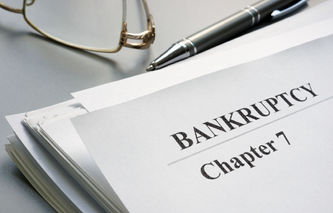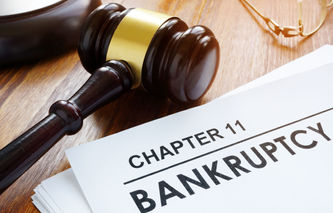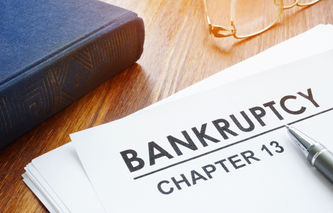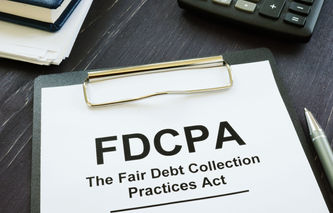Companies are in the business of making money for their shareholders. This means they need to carefully monitor and control the amount of credit extended to their customers, or their write off of uncollectible accounts will increase.
In this article, we're going to cover the fundamental rules that many companies utilize to control how much money is owed to them by their customers. That explanation will include a brief overview of a typical dunning process, as well as a discussion of why companies are concerned about both non-payers and late payers. Individuals that are having trouble with debt will find this article helpful, since it provides insights into what can happen as creditors start their debt collection process.
Individuals that are having trouble with debt will find this article helpful; it provides insights into what can happen as creditors start their debt collection process.
Getting Customers to Pay their Bills
One of the biggest challenges companies face is getting customers to consistently pay for the goods and services received. More importantly, companies not only want to get paid, but they want to get paid in a timely fashion.
Whenever services or products are received, and payment is not made immediately, the company has extended credit to the consumer. In doing so, the company assumes a risk of non-payment. Generally, companies extending credit to customers are concerned with:
Non Payment: anytime payment in-full is not received, there is a significant chance the consumer may never pay back all of the money owed. This creates a risk of non-payment.
Late Payments: when consumers do not pay back their debt in a timely manner, companies incur an expense that is the cost of borrowing money from their creditors.
Companies are concerned about both non-payments and late payments because these patterns can create cash flow problems. For example, the company might be paying for raw materials to manufacture its products, or paying its employees to provide the services it sells to its customers. If the consumer is late making payment, the company will have a larger than desired time lag between their expenses to make the product, and the revenues received for the product.
If you're struggling, make sure to visit our articles helping you get out of debt:
DSO and Aged Receivables
Days Sales Outstanding, or DSO, is just one of several measures that companies use to track this delay in receiving payment. DSO measures the average number of days that a company takes to collect revenue after a sale has been booked.
Another measure of the timeliness of payment is aged receivables. This measure is used to track the aging of a company's accounts receivable. Aged receivables are typically stated in terms of dollars owed that are 30, 60 or 90+ days past due. Money that is past due in each of these timeframes is reported to senior executives, usually in terms of the percentage of total receivables that is in each of the aging brackets.
Revenue Protection
In order to closely monitor these payment patterns, companies will establish revenue protection departments. These groups are typically responsible for both the measurement and the collection of monies owed. This group is also responsible for constantly monitoring the creditworthiness of individual customers.
Deposits
When issuing credit to a new customer, the company might first run a credit check using a credit rating agency to see if the consumer meets pre-established creditworthiness thresholds. This process is the revenue protection group's first line of defense against non-payment of monies owed. If a new customer does not pass a certain credit threshold, or their credit history is insufficient to receive a credit score, the company will ask the customer for a deposit before activating an account.
Deposits can be a temporary or permanent arrangement. Typically, deposits are returned to consumers after an acceptable payment pattern is established. Oftentimes, deposits are returned to consumers with interest.
Late Payment Charges
If payment is not received by its due date, many companies charge what is known as a late fee or a past due fee. This charge is meant to encourage customers to pay their bills on time. The late fee policies will vary from company to company and will usually be detailed on the invoice sent to customers as part of the "fine" print.
Oftentimes, regulating bodies establish standards or guidelines, which companies can follow when creating their late payment policy. The policy fees are normally related to the company's cost of recovering money and / or its cost of money.
Late payment fees are usually due after a certain timeframe has passed and full payment has not yet been received. For example, the creditor might charge a fee that is 15% of any amount unpaid 30 days after the invoice is sent to the customer. Late fees charged for businesses are usually higher than those charged to consumers.
Sometimes consumers can only afford, or only wish, to send in a partial payment. Anytime payment-in-full is not received, the unpaid balance may be subject to a late payment charge.
Dunning and Collections
If payment patterns indicate a customer's debt might not be repaid, the company will institute its dunning process. Dunning is the name given to the series of procedures that methodically communicate with customers in the hope of collecting monies owed. These communications usually start with gentle reminders, in case a customer inadvertently failed to send in a payment.
Steps in a typical dunning process might include:
A gentle reminder in the next invoice, or a dedicated letter to the customer indicating that payment was not received.
An outbound call to the consumer reminding them that payment has not yet been received.
A warning letter sent to the consumer stating that if payment is not received in a certain timeframe, the company will take steps to discontinue service (such as in the case of utilities) or the account will be sent to a debt collection agency.
Discontinuance of service and / or selling of the receivable to a debt collection agency.
Prohibited Debt Collection Practices
There are certain practices that are not allowed under the Fair Debt Collections Practices Act. The most commonly reported illegal practices include:
Demanding larger payments than permitted
Harassing the debtor or others
Threatening dire consequences if payment is not received
Impermissible calls to the consumer's place of employment
Revealing debt to third parties
Failing to send required notices
Continuing to contact the consumer after receiving a cease communications letter
Failing to verify disputed debt
This topic is discussed in more detail in our article on Debt Collection Practices.
Finally, if anyone believes they've been a victim of illegal debt collection practices, they can report the activity to their state Attorney General's office and / or the Federal Trade Commission. Consumers can also telephone the Federal Trade Commission using their toll free number: 1-877-FTC-HELP (1-877-382-4357).
Please note that your rights are reserved under the Fair Debt Collection Practices Act (FDCPA). Visit our article outlining how to communicate with debt collectors for more information.




